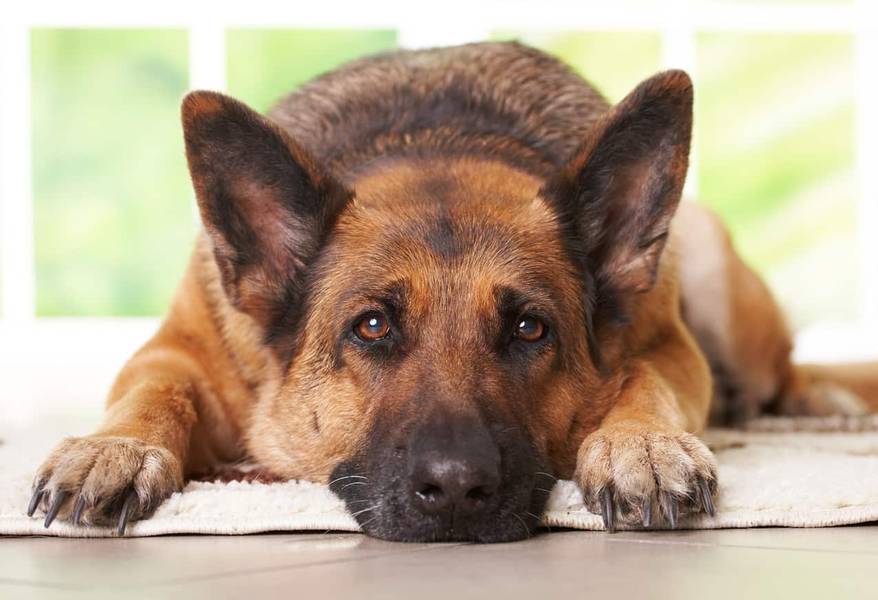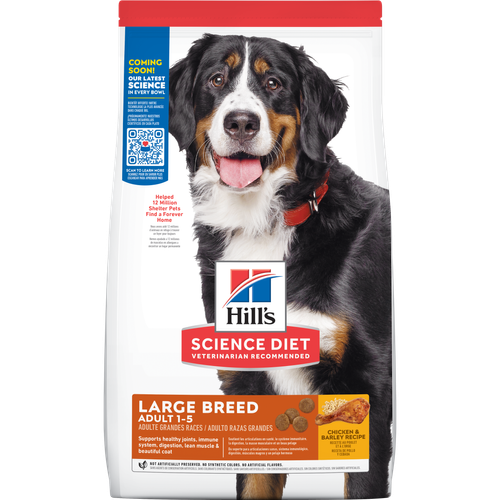
-
Find the right food for your petTake this quiz to see which food may be the best for your furry friend.Find the right food for your petTake this quiz to see which food may be the best for your furry friend.Featured products
 Puppy Large Breed Chicken & Brown Rice Recipe
Puppy Large Breed Chicken & Brown Rice RecipeVital nutrients to support 5 essential building blocks for lifelong health
Shop Now Adult Chicken & Barley Recipe Dog Food
Adult Chicken & Barley Recipe Dog FoodSupports lean muscle and beautiful coat for adult dogs
Shop Now Puppy Sensitive Stomach & Skin Salmon & Brown Rice Recipe
Puppy Sensitive Stomach & Skin Salmon & Brown Rice RecipeDelicious, highly digestible recipe, gentle on stomachs. Nourishes skin & promotes a lustrous coat
Shop NowFeatured products Kitten Chicken Recipe
Kitten Chicken RecipeVital nutrients to support 5 essential building blocks for lifelong health
Shop Now Adult Urinary Hairball Control Chicken & Rice Recipe Cat Food
Adult Urinary Hairball Control Chicken & Rice Recipe Cat FoodActively supports the health of the whole urinary system
Shop Now Adult 7+ Chicken Recipe Cat Food
Adult 7+ Chicken Recipe Cat FoodSupports energy level and beautiful fur in mature cats
Shop Now -
Dog
- Dog Tips & Articles
-
Health Category
- Weight
- Food & Environmental Sensitivities
- Urinary
- Digestive
- Joint
- Kidney
-
Life Stage
- Puppy Nutrition
- Adult Nutrition
- Senior Nutrition
Cat- Cat Tips & Articles
-
Health Category
- Weight
- Skin & Food Sensitivities
- Urinary
- Digestive
- Kidney
-
Life Stage
- Kitten Nutrition
- Adult Nutrition
Featured articles The Incredible Science Behind Your Pet's Microbiome
The Incredible Science Behind Your Pet's MicrobiomeLearn what a pet's microbiome is, how it contributes to your pet's gut & overall health, and why nutrition is important in maintaining healthy microbiomes.
Read More Pet Food Storage Tips
Pet Food Storage TipsDiscover how and where to store your dry, as well as canned, dog and cat food. Learn how to find the "best before" dates on all Hill's pet food packaging.
Read More Water
WaterDiscover why water is the most important nutrient for your dog or cat to live a healthy life. Find out how much water your pet should consume each day.
Read More -


Your dog hasn't been eating his food lately, and you don't know what to do. You're wondering how to get a dog to eat, but more importantly, how to figure out why he stopped eating in the first place. Take time to learn why your dog won't eat and how you can help.
Stress
Stressful situations and changes in your dog's environment might be the cause for his temporary refusal to eat. Has anything changed in your pet's life recently? It could be something major, like a move to a new home or starting doggy day care, or minor, like a family member leaving for a weekend trip. These changes in your pet's life might upset his eating habits. While this is certainly alarming, stressful situations and environmental changes tend to be temporary issues. If they last much longer or your dog shows other signs of stress and anxiety (like soiling in the house or destroying furniture), contact your veterinarian.
Food Change
A change in cuisine could also be to blame. Just like humans, dogs have opinions on what food they do or do not enjoy. Your pet may be simply snubbing his nose at his kibble, especially if you've recently changed flavors or brands. Don't rule out the possibility that the food you're serving your pet might have spoiled; make sure to check the expiration on the packaging. You can follow these helpful tips if your dog is a picky eater.

Illness
Loss of appetite may be a major sign that something is physically wrong with your pet. Your dog may be suffering from dental problems, making it difficult to chew and swallow. Other medical issues could range from an infection to even cancer or liver failure. If you suspect an illness as the cause of your pet's sudden decision to stop eating, make an appointment with your vet to run some tests immediately.
Look for other signs beyond not eating that might be pointing to a health related reason. For instance, if your dog has been having diarrhea or even hasn't pooped in a couple of days, he might be having some GI upset. Is he acting particularly lethargic or withdrawn? A dog that is still active and excited typically means he feels fine, so it might just be him being picky, but not eating combined with other signs can be a good indication of a health concern and you should take him to the vet to get checked.
Also, be sure to check his water intake. If he is not eating, but is drinking water he could potentially just be a picky eater. Monitor him for a day or two and see if his appetite changes. If not, and he still only continues to drink water, you should consult your vet. If he is not eating or drinking, you need to call your vet immediately. Dogs should not go a single day without drinking water.
Medication can be another potential reason your dog is eating less. While medicines and vaccinations help keep your dog healthy, sometimes an animal experiences side effects. You should monitor your dog after he is given medication and call your vet if his poor appetite lasts longer than 24 hours.


Tasty Tips
How to Get a Dog to Eat
If you can identify why your dog won't eat, you're one step ahead of the game. Treating the underlying issue may get your pet to resume a healthy eating schedule. If issues linger, there are some things you can do to get your pet eating again. First, are you feeding your dog table scraps or overfeeding treats? If so, stop right away. Healthy eating starts with regular mealtimes, not off-the-clock snacking.
Adjusting how you feed your dog may help, too. For example, if your furry friend is suffering from anxiety, you might want to consider feeding him away from other animals. If he's bored with eating, make dinner time more fun by using a puzzle or toy that dispenses his food.
Finally, it's best to make an appointment with your vet if you can't get your dog to eat healthy, normal meals again. Going without food for too long can lead to malnutrition or dehydration. Your vet will help you determine why your dog is experiencing a loss of appetite and give you tips on how to get him eating again.


Erin Ollila believes in the power of words and how a message can inform—and even transform—its intended audience. Her writing can be found all over the internet and in print, and includes interviews, ghostwriting, blog posts, and creative nonfiction. Erin is a geek for SEO and all things social media. She graduated from Fairfield University with an M.F.A. in Creative Writing. Reach out to her on Twitter @ReinventingErin or learn more about her at http://erinollila.com.
Related products

Vital nutrients to support 5 essential building blocks for lifelong health

Delicious, highly digestible recipe, gentle on stomachs. Nourishes skin & promotes a lustrous coat

Supports healthy joints, lean muscle, and beautiful coat for large breed dogs

Supports lean muscle and beautiful coat for adult dogs
Related articles

Proper nutrition for your pregnant or nursing dog is vital to her and her puppy's health. Learn what you should do provide her with the proper nutrients.

Understand the role that Omega-6 and Omega-3 fatty acids play in your dog's overall health, and how you can ensure they are getting enough.

Large and giant breed puppies have different nutritional needs than other dogs. Learn how to provide the special care they need to grow up big and strong.

Learn about Hill's puppy food and the nutritional benefit & high quality ingredients that it contains for your pup.

Put your dog on a diet without them knowing
Our low calorie formula helps you control your dog's weight. It's packed with high-quality protein for building lean muscles, and made with purposeful ingredients for a flavorful, nutritious meal. Clinically proven antioxidants, Vitamin C+E, help promote a healthy immune system.
Put your dog on a diet without them knowing
Our low calorie formula helps you control your dog's weight. It's packed with high-quality protein for building lean muscles, and made with purposeful ingredients for a flavorful, nutritious meal. Clinically proven antioxidants, Vitamin C+E, help promote a healthy immune system.

